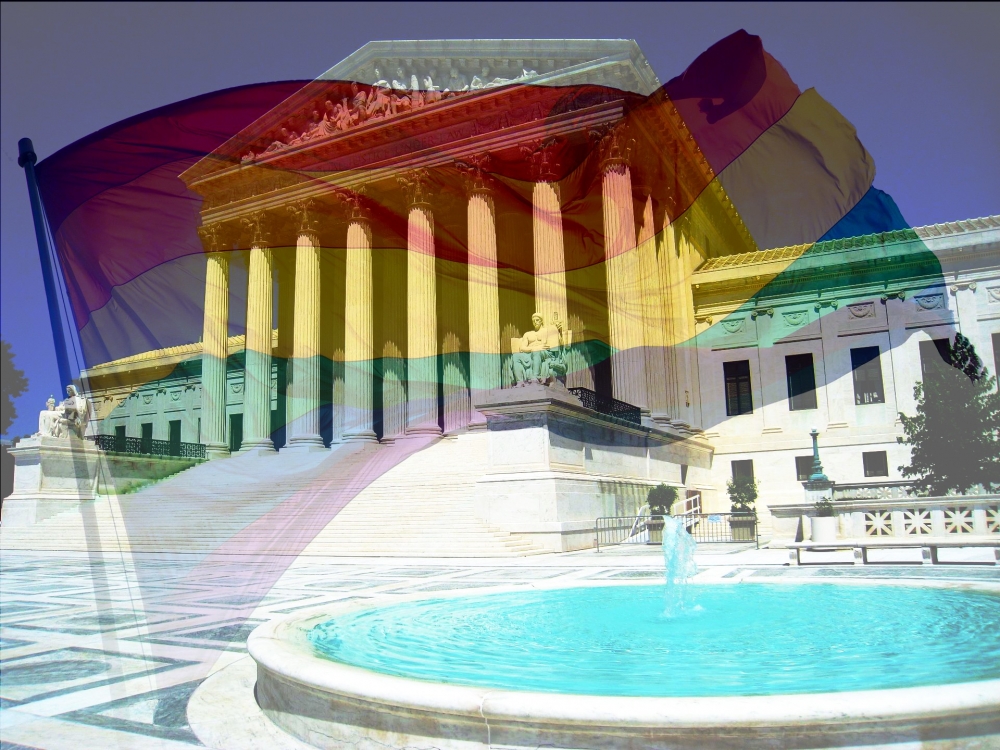
‘A Historic Moment’
The Supreme Court’s ruling Friday that same-sex couples have a constitutional right to marry nationwide was celebrated by supporters but did not surprise UC Santa Barbara scholars.
“I had actually predicted it for quite a while because of the things I know contribute to social movements, and because of the incremental decisions by the court,” said Verta Taylor, UCSB professor of sociology and co-editor of the book, “The Marrying Kind? Debating Same-Sex Marriage within the Lesbian and Gay Movement.”
Leila Rupp, a UCSB professor of feminist studies, said she also anticipated the decision.
“I was optimistic the Supreme Court was going to do the right thing and I think it was really a historic moment,” Rupp said. “I think the celebration outside the Supreme Court was very telling.”
From a legal perspective, Gayle Binion, professor emerita of political science and a specialist in public law, said the court’s earlier rulings provided an indication of the likely outcome.
“I was not at all surprised by the decision,” Binion said. “It just followed so logically what the court said in the Windsor case.”
In United States v. Windsor in 2013, the Supreme Court struck down the part of the Defense of Marriage Act that barred federal benefits for same-sex couples even in states that allowed those marriages.
“Windsor said the federal government hasn’t shown sufficient interest in distinguishing which married people it was going to treat differently from other married people,” Binion said. “Although much of the Court's opinion today is focused on marriage as a fundamental right, it was a pretty short step from Windsor with respect to the Equal Protection aspect of the case. It found that the states also had insufficient grounds for limiting who could marry, on the same basis as DOMA had unconstitutionally discriminated, that of sexual orientation.”
The Supreme Court’s 5-4 decision Friday will put an end to same-sex marriage bans in the 14 states that still prohibited gay marriage.
Justice Anthony Kennedy authored the majority opinion, writing that marriage is a fundamental right and that under the equal protections of the 14th Amendment, “couples of the same-sex may not be deprived of that right and that liberty.”
Binion also analyzed the opinions of the four dissenting justices, who argued that the decision should be left to the individual states.
“None of the dissenters’ opinions accept that being gay or lesbian is as intrinsic a characteristic of a person as is race. Hence, none see an equal protection problem,” Binion said.
In retrospect, the Supreme Court decision came on the heels of sweeping change in public opinion.
“One thing I think is true is this social movement’s success came at an explosive speed, and probably more rapidly than any in the history of social movements,” Taylor said.
A recent CNN/ORC poll found that 63 percent of Americans believe gay and lesbian couples have a constitutional right to marry, up from 44 percent in 2008.
Taylor, who studies social movements and will speak on same-sex marriage at the convention of the American Sociological Association in August in Chicago, cited organizational strength, tactics and “elite support” as reasons support for same-sex marriage grew rapidly. That shift paved the way for the Supreme Court to make a legal ruling that even a decade ago would have seemed unthinkable.
Those tactics included couples sharing their stories, as well as a shift in emphasis from the civil rights aspects to the “right to love,” Taylor said. She cited President Obama’s change in public stance to one supporting same-sex marriage as evidence of “elite support.”
“People began to see gays and lesbians not as different but as similar,” Taylor said.
Taylor and Rupp cautioned, however, that the marriage decision is not the last hurdle for LGBT civil rights advocates. Issues such as housing and employment law remain unresolved.
“It’s still possible to be fired for being gay or lesbian or transgender,” Rupp said. “There’s some controversy in the LGBT movement about how important marriage is, but even people who think it’s not the most important thing realize this is a big step forward.”



